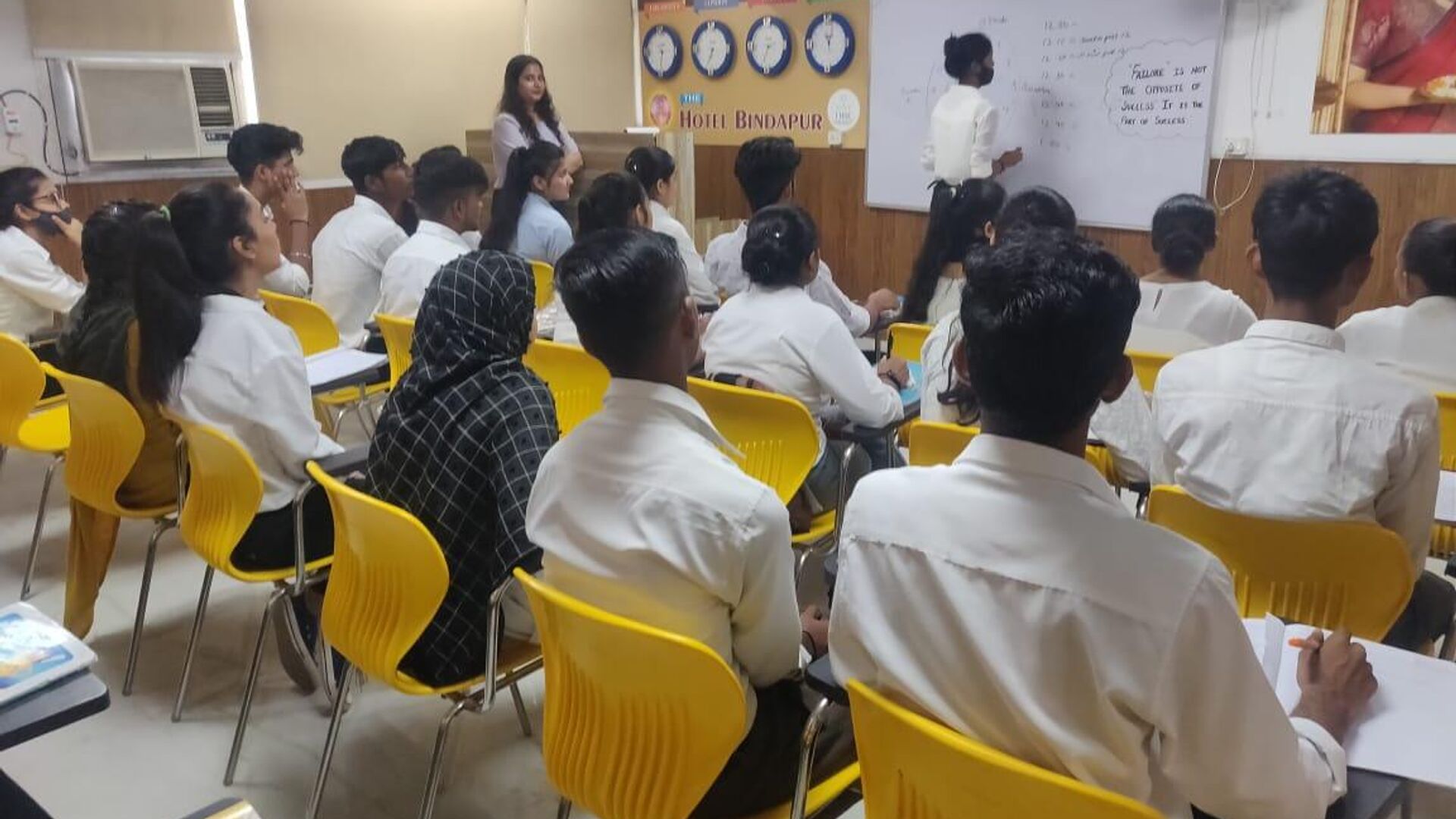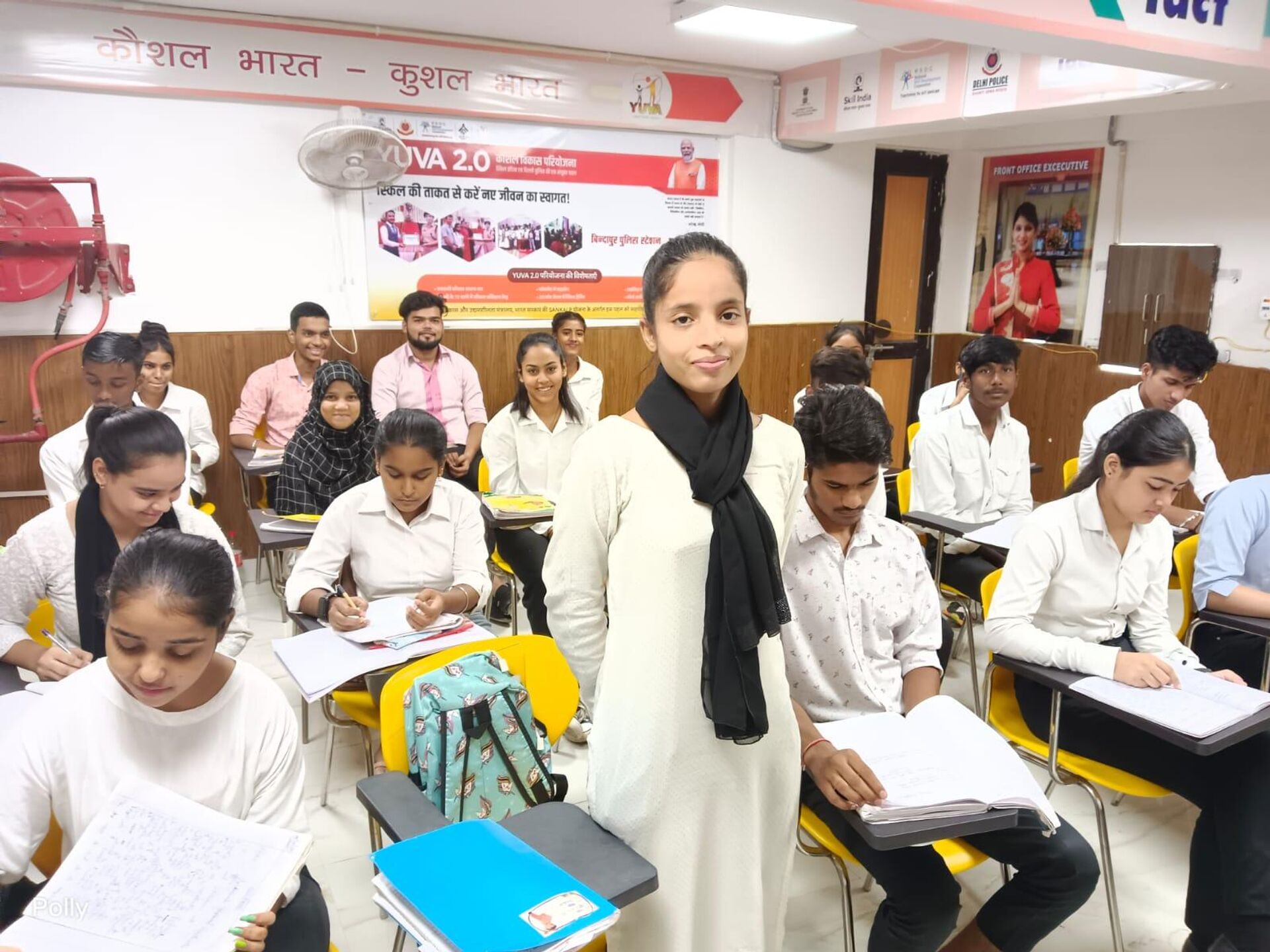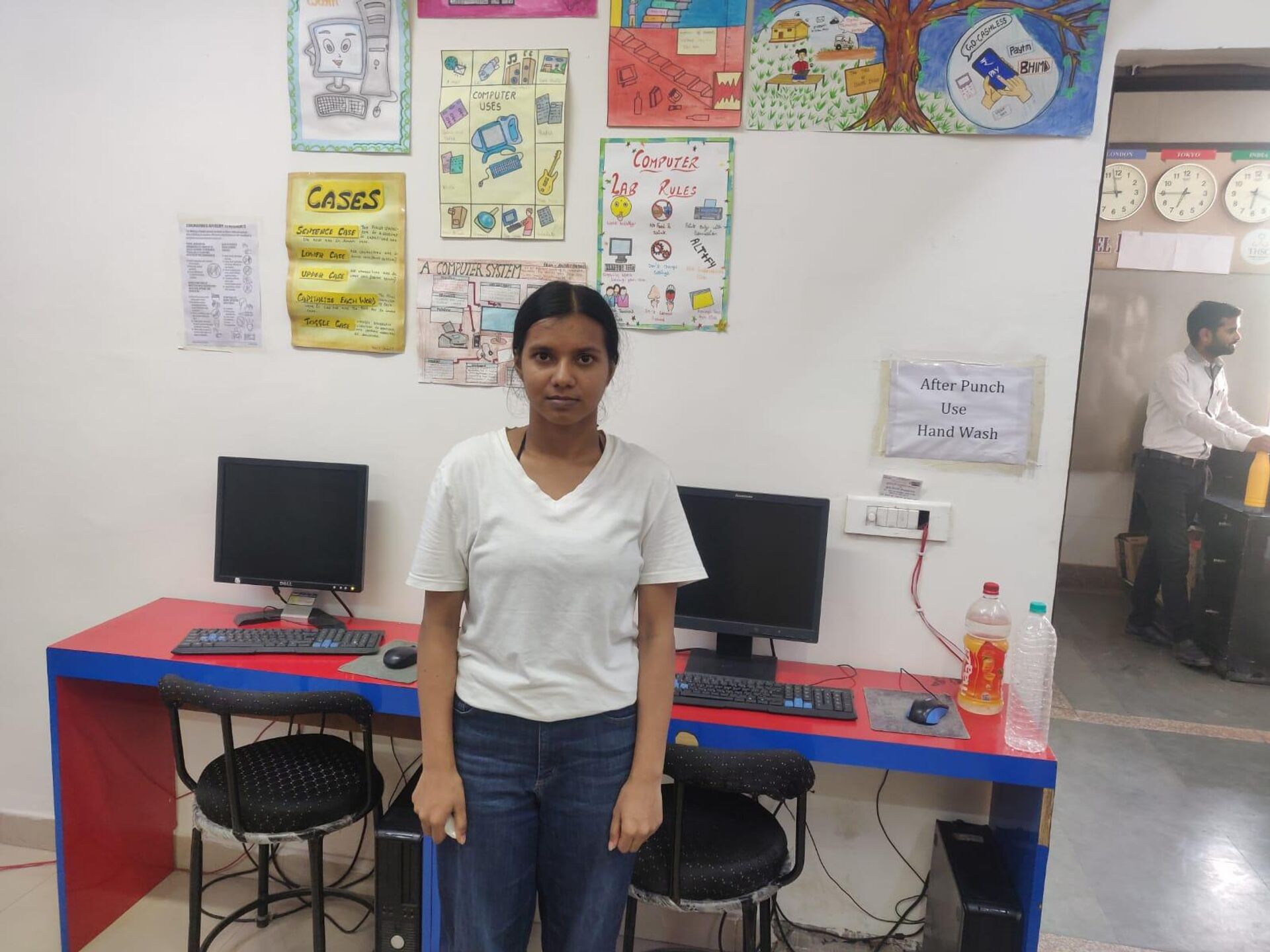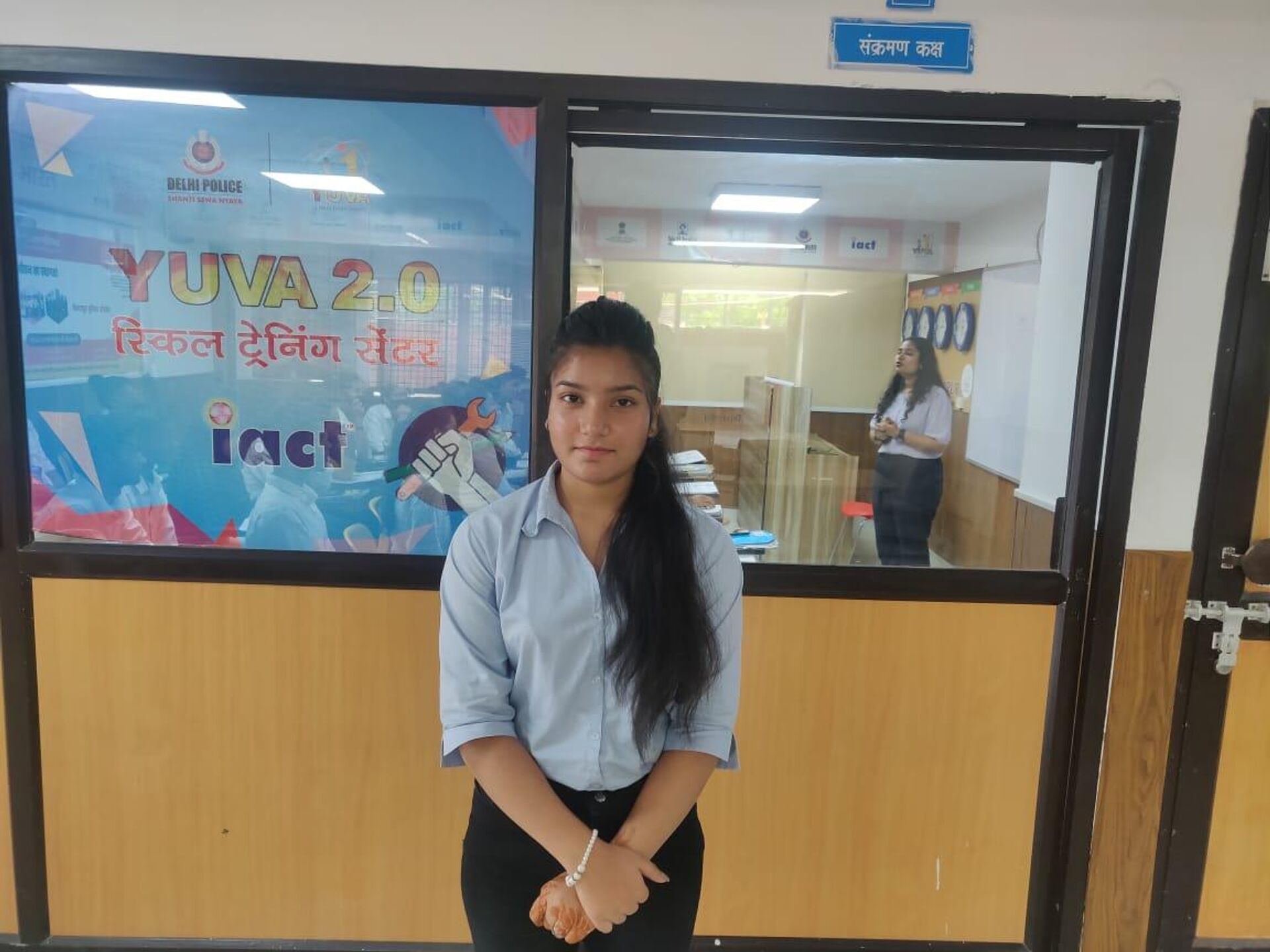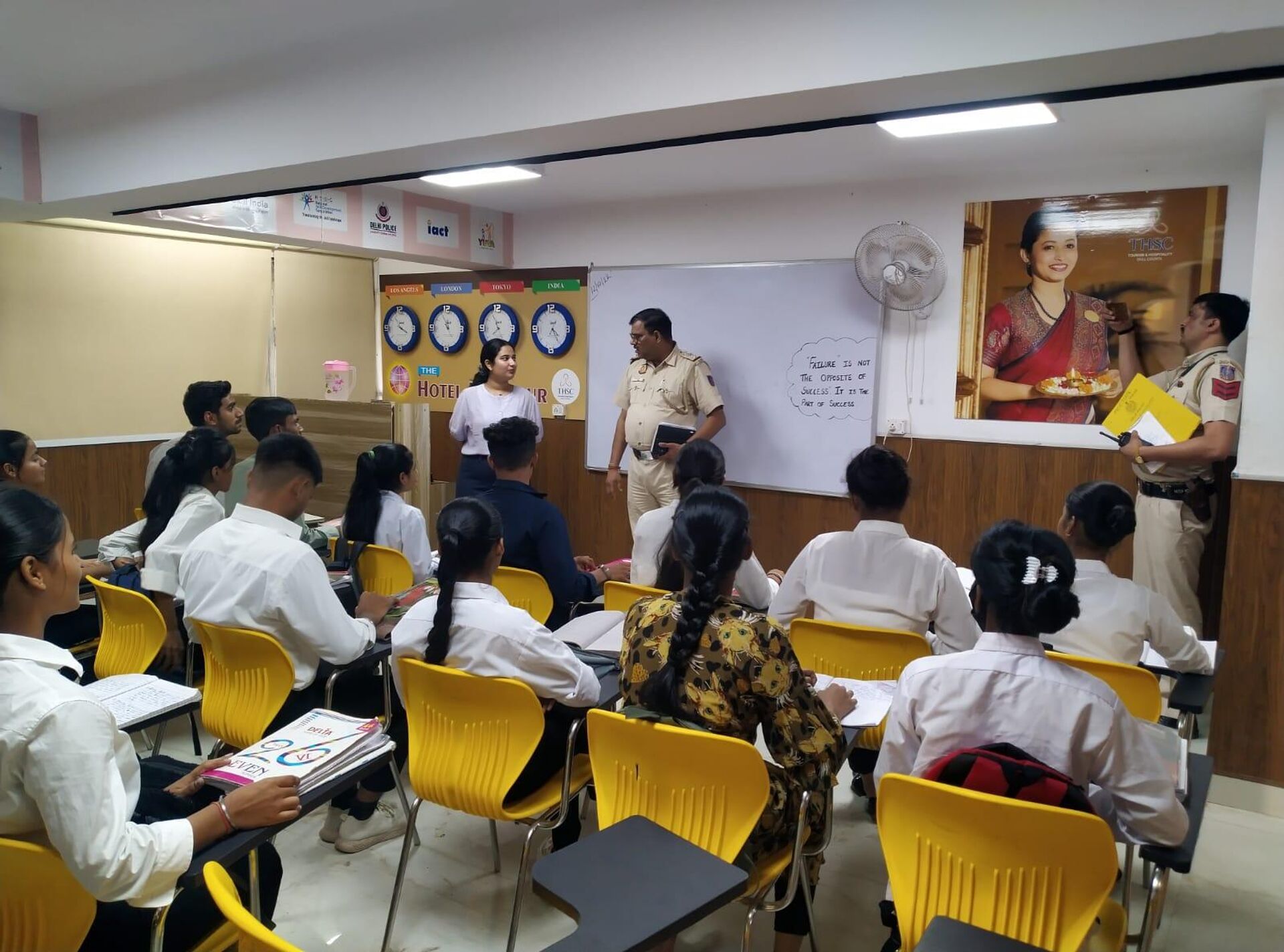https://sputnikglobe.com/20221018/from-streets-to-desk-jobs-delhi-police-step-in-to-help-vulnerable-youths-1101993191.html
From Streets to Desk Jobs, Delhi Police Step in to Help Vulnerable Youths
From Streets to Desk Jobs, Delhi Police Step in to Help Vulnerable Youths
Sputnik International
According to recent data from India's National Crime Record Bureau (NCRB), the juvenile (under-18) crime rate across the country is on the rise, already... 18.10.2022, Sputnik International
2022-10-18T11:27+0000
2022-10-18T11:27+0000
2022-10-18T11:27+0000
india
delhi
new delhi
police
police
police
police
youth
https://cdn1.img.sputnikglobe.com/img/07e6/0a/12/1101994855_0:108:1152:756_1920x0_80_0_0_aff212e38223c065108467b210289b74.jpg
Months after finishing school, 20-year-old Soni is now worried about her future.Her dad is a daily wager, who works as a bus conductor, and her mom earns a living as a presser. The family's collective income barely helps them cover their daily needs.Soni is the second child out of three kids at home. She helps her mom deliver ironed clothes to customers at their residence, and later shares her household chores.After witnessing her family's plight of being dependent on the government's free rations during the COVID-19 lockdowns, she wanted to get a job herself — but due to a lack of skills and experience, she was unsure how to start.However, her life changed when a Delhi police official came to visit the area where she lives and informed local teenagers about the Yuva (Youth) initiative, under which free-of-cost skill training is provided to those from underprivileged families. On completing the course, the police promise to help them find a decent job.Under the initiative, short-term skill courses lasting three to four months are held for 22 job roles, including make-up artists, front office executives, retail sales and marketing, computer data operators, cell phone technicians, and hotel management skills, among others.The initiative was launched under the Pradhan Mantri Kaushal Vikas Yojna (PMKVY) or, Prime Minister's efficiency development plan of the Union Ministry of Skill Development by the Delhi police.Bindu, a 20-year-old, could not complete her school education since her father and relatives believe women require only basic education. Nevertheless, she joined a computer documentation course at Delhi's Madipur area in late October.“My father is a migrant worker who is into refrigerator repair work. Things turned worse during the lockdown, when he could not find work for months. I guess during that time he realized the value of education. He has a skill. But no company will hire him because he’s uneducated,” Bindu stated.Karishma is a 20-year-old whose father left her mother almost 15 years ago. She says he left because her mother gave birth to a special needs child. Her mother worked as a cook in private houses, barely earning INR 10,000 ($121) a month.“I want to educate my brother. But schooling for a special child is costly. I also want to study further. But let’s see where life leads to,” she said.The program was originally launched in 2017 by former Home Minister Rajnath Singh, aiming to wean vulnerable youngsters away from crime and train them in job-oriented courses. At the time, 12,795 youths aged between 15 and 25 registered themselves and 7,361 were offered jobs, including at multinational companies.In 2022, the program was re-launched at 78 of the 209 police stations across Delhi.“Hence, we decided to start something for those who hate us the most. And that is the youth. What does the youth want — a job. It’s also a way for us to gel up with the youth,” Beniwal stressed.Dhanjay Gupta, a station house officer in Bindapur, said, “Before admitting them into the course, we ensure such youths are actually needy and are not going to leave us in the middle of the course. Sometimes, we also talk to parents to convince them to send them to school.”Going by the NCRB data, Delhi tops the list of juveniles committing crimes, with 2,618 cases in 2021, up from 2,436 in 2020, and 2,760 in 2019. The city of Mumbai, which is more crowded than Delhi, had only 332 cases registered against juveniles in 2021.
delhi
new delhi
Sputnik International
feedback@sputniknews.com
+74956456601
MIA „Rossiya Segodnya“
2022
Deexa Khanduri
https://cdn1.img.sputnikglobe.com/img/07e4/0c/1e/1081607388_0:0:961:960_100x100_80_0_0_e9e931b8c1e18fb41f3074e2145d7a3a.jpg
Deexa Khanduri
https://cdn1.img.sputnikglobe.com/img/07e4/0c/1e/1081607388_0:0:961:960_100x100_80_0_0_e9e931b8c1e18fb41f3074e2145d7a3a.jpg
News
en_EN
Sputnik International
feedback@sputniknews.com
+74956456601
MIA „Rossiya Segodnya“
Sputnik International
feedback@sputniknews.com
+74956456601
MIA „Rossiya Segodnya“
Deexa Khanduri
https://cdn1.img.sputnikglobe.com/img/07e4/0c/1e/1081607388_0:0:961:960_100x100_80_0_0_e9e931b8c1e18fb41f3074e2145d7a3a.jpg
india, delhi, new delhi, police, police, police, police, youth
india, delhi, new delhi, police, police, police, police, youth
From Streets to Desk Jobs, Delhi Police Step in to Help Vulnerable Youths
Deexa Khanduri
Sputnik correspondent
Exclusive
According to recent data from India's National Crime Record Bureau (NCRB), the juvenile (under-18) crime rate across the country is on the rise, already reaching seven percent. Overall in 2021, 31,170 cases were registered against young offenders.
Months after finishing school, 20-year-old Soni is now worried about her future.
Her dad is a daily wager, who works as a bus conductor, and her mom earns a living as a presser. The family's collective income barely helps them cover their daily needs.
Soni is the second child out of three kids at home. She helps her mom deliver ironed clothes to customers at their residence, and later shares her household chores.
After witnessing her family's plight of being dependent on the government's free rations during the COVID-19 lockdowns, she wanted to get a job herself — but due to a lack of skills and experience, she was unsure how to start.
“It’s not like my parents do not want me to learn further. But our financial condition restricted us [in pursuing education]. Even the cheapest course costs thousands of rupees,” Soni, who resides in a ghetto in the Bindapur area in Delhi, told Sputnik.
However, her life changed when a Delhi police official came to visit the area where she lives and informed local teenagers about the Yuva (Youth) initiative, under which free-of-cost skill training is provided to those
from underprivileged families. On completing the course, the police promise to help them find a decent job.
Under the initiative, short-term skill courses lasting three to four months are held for 22 job roles, including make-up artists, front office executives, retail sales and marketing, computer data operators, cell phone technicians, and hotel management skills, among others.
The initiative was launched under the Pradhan Mantri Kaushal Vikas Yojna (PMKVY) or, Prime Minister's efficiency development plan of the Union Ministry of Skill Development by the Delhi police.
“As it requires good communication skills, the training course is hoped to also boost my confidence,” shared Soni, who registered for the front office executive course in September.
Bindu, a 20-year-old, could not complete her school education since her father and relatives believe women require only basic education. Nevertheless, she joined a computer documentation course at Delhi's Madipur area in late October.
“My father is a migrant worker who is into refrigerator repair work. Things turned worse during the lockdown, when he could not find work for months. I guess during that time he realized the value of education. He has a skill. But no company will hire him because he’s uneducated,” Bindu stated.
“I’m not sure if my father is supporting me 100 percent or not for pursuing this course, but it has come as a blessing for me. When I will start earning money, I will be powerful. Male relatives will respect me,” Bindu said, adding that women are not allowed to work in her family.
Karishma is a 20-year-old whose father left her mother almost 15 years ago. She says he left because her mother gave birth to a special needs child. Her mother worked as a cook in private houses, barely earning INR 10,000 ($121) a month.
“I want to educate my brother. But schooling for a special child is costly. I also want to study further. But let’s see where life leads to,” she said.
The program was originally launched in 2017 by former Home Minister Rajnath Singh, aiming to wean vulnerable youngsters away from crime and train them in job-oriented courses. At the time, 12,795 youths aged between 15 and 25 registered themselves and 7,361 were offered jobs, including at multinational companies.
In 2022, the program was re-launched at 78 of the 209 police stations across Delhi.
"Police's image among masses is very negative, especially the poor people. They do not want to interact with us. They always think if we’re interacting with them, it means interrogation or arresting people. Hence, people are avoiding speaking with police,” Special Commissioner Sanjay Beniwal told Sputnik.
“Hence, we decided to start something for those who hate us the most. And that is the youth. What does the youth want — a job. It’s also a way for us to gel up with the youth,” Beniwal stressed.
Talking about the background of these children, he said, “Most of the children enrolling in our program are victims of crimes — they’re either orphans or children with one parent, ragpickers' kids, and we’ve many other vulnerable categories.”
Dhanjay Gupta, a station house officer in Bindapur, said, “Before admitting them into the course, we ensure such youths are actually needy and are not going to leave us in the middle of the course. Sometimes, we also talk to parents to convince them to send them to school.”
Going by the NCRB data, Delhi tops the list of juveniles committing crimes, with 2,618 cases in 2021, up from 2,436 in 2020, and 2,760 in 2019. The city of Mumbai, which is more crowded than Delhi, had only 332 cases registered against juveniles in 2021.
